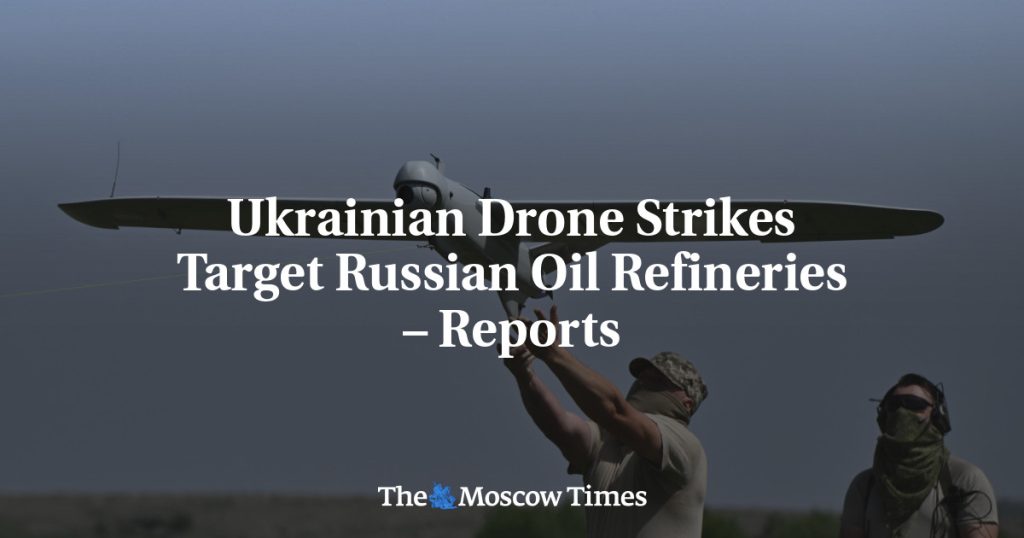The Russian Defense Ministry reported that Ukrainian drones targeted several regions in central and southwestern Russia, resulting in the destruction and interception of six drones by air defense forces. No injuries or fatalities were reported in the attempted drone attack in the Ryazan region, according to the region’s Governor Pavel Malkov. Ukrainian media sources claimed that Kyiv was behind attacks on at least two Russian oil refineries, with one in the Ryazan region and another in the Voronezh region. An unverified video showed the refinery in the Ryazan region on fire, although Russian authorities have not yet commented on the reported attacks.
The Ryazan oil refinery, operated by Rosneft, refines a significant portion of Russia’s total refined crude and has been targeted by Ukrainian attacks in recent months. The region where the refinery is located shares a border with the Moscow region and lies over 350 kilometers northeast of the border with Ukraine. The reported drone attacks on oil refineries in Russia have led to a decrease in the country’s gasoline production, according to Russian media reports citing official data. The Ukrainian drone attacks have impacted the energy sector in Russia, potentially leading to further tensions between the two countries.
The Ukrainian security service officials stated that Kyiv’s forces conducted the attacks on the oil refineries as part of special intelligence operations. While the Moscow Times could not independently verify the reports, Ukrainian military intelligence sources confirmed the drone attacks on the refineries in the Ryazan and Voronezh regions. The lack of official Russian comments on the reported attacks raises questions about the extent of the damage caused and the overall significance of the incidents. These incidents highlight the escalating conflict between Ukraine and Russia, with the energy sector becoming a target in the ongoing hostilities.
The use of drones for targeted attacks on oil refineries marks a shift in the tactics employed by Ukrainian forces in their conflict with Russia. By targeting key infrastructure such as oil refineries, Ukraine aims to disrupt Russia’s energy production and weaken its economy. The frequency of drone attacks on oil refineries in Russia indicates a strategic approach by Ukrainian forces to inflict damage on vital facilities and undermine Russia’s stability. The implications of these attacks extend beyond the immediate physical damage caused, impacting Russia’s ability to maintain energy production and supply in the face of ongoing hostilities.
The Ukrainian drone attacks on Russian oil refineries signify a new phase in the conflict between the two countries, with energy infrastructure becoming a focal point of military operations. The use of drones as a tactic to target refineries reflects the evolving nature of warfare in the modern era, where unmanned aerial vehicles play a significant role in military strategies. The impact of these attacks on Russia’s energy sector underscores the vulnerability of key infrastructure to aerial assaults, highlighting the need for enhanced security measures to protect critical facilities. The ongoing conflict between Ukraine and Russia continues to escalate, with the energy sector emerging as a prime target in the battle for control and dominance in the region.
The consequences of the drone attacks on oil refineries in Russia reverberate throughout the energy sector, affecting production levels and supply chains in the country. The disruption caused by these attacks underscores the vulnerability of critical infrastructure to targeted strikes, emphasizing the need for heightened security measures to safeguard key facilities. The implications of the ongoing conflict between Ukraine and Russia extend beyond the military realm, impacting economic stability and energy security in the region. As tensions escalate and hostilities persist, the use of drones for targeted attacks on oil refineries represents a significant escalation in the conflict, with far-reaching consequences for both countries involved.


